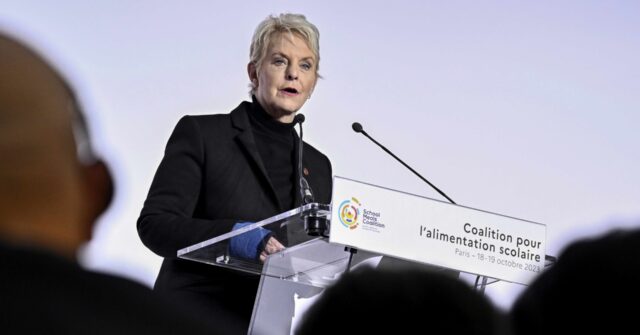Recently, an intense debate erupted regarding the humanitarian aid situation in Gaza following statements made by Cindy McCain, the widow of the late Senator John McCain and the director of the United Nations World Food Program (WFP). During an appearance on CBS News’ “Face the Nation,” McCain claimed that only two aid trucks had successfully entered Gaza throughout November, emphasizing the challenges faced by aid workers due to insecurity and alleged targeting by Israel. This assertion led her to suggest that Israel, rather than Hamas, was primarily responsible for the looting of aid trucks within Gaza. The remarks sparked controversy, especially in light of widespread concerns surrounding famine conditions in the region, which McCain indicated were deliberately exacerbated by Israeli actions.
In response to McCain’s claims, Israeli government spokesman David Mencer refuted the figures she provided, asserting that they were inaccurate. He went on to present data indicating that 847 WFP trucks had been coordinated to enter Gaza during November, countering the notion that only a couple of trucks made it through. Mencer’s statements highlighted the volume of humanitarian aid entering Gaza, including over 1,300 humanitarian trucks in the last week alone, which he claimed included essential supplies like food, water, and medical necessities. He also noted that a significant amount of aid remained in Gaza, awaiting distribution by local agencies, suggesting that logistical issues, rather than shortages, were complicating the situation.
The discussion further pointed to the perception of famine conditions in Gaza; host Margaret Brennan suggested that the crisis was “man-made,” insinuating that Israeli actions were behind the humanitarian challenges. Despite the harsh realities depicted by McCain and Brennan, Mencer’s rebuttal focused on the need for accurate representation of the aid situation and the security obstacles hindering operations. He described the chaos in Gaza as stemming from lawlessness, where gangs reportedly obstructed the delivery of humanitarian assistance and contributed to the environment of insecurity that McCain referenced.
Mencer’s defense included statistics illustrating the flow of aid, with specific mention of the recent influx of 16 million pounds of flour designated for local bakeries since December began. He attempted to paint a picture of Israel’s commitment to humanitarian efforts while expressing disappointment over what he termed “incorrect figures” propagated by McCain, especially considering the respect held for her late husband. This tension underscores a broader narrative in which perceptions of Israel’s role in the Palestinian crisis remain contentious and polarizing.
The ongoing conflict between Israel and Hamas is complicated by the broader geopolitical landscape and the historical context of their interactions. Cindy McCain’s advocacy for humanitarian access resonates with many in the international community who are increasingly concerned about the suffering experienced by Gazans. However, Israeli officials maintain that they facilitate substantial humanitarian aid despite ongoing security threats posed by Hamas and other factions in the region, thereby branding accusations against them as politically motivated or misguided.
Lastly, the media portrayal of the Israeli-Palestinian conflict often amplifies existing divisions, leading to debates around accountability and the humanitarian responsibilities of involved parties. The exchange between McCain and Mencer highlights not only the importance of accurate information regarding aid distribution but also the complexity of narratives shaped by political affiliations and personal histories. As the humanitarian crisis unfolds, it seems imperative for all stakeholders to navigate these discussions with a focus on factual clarity and a shared commitment to alleviating the suffering of those caught in the conflict.

